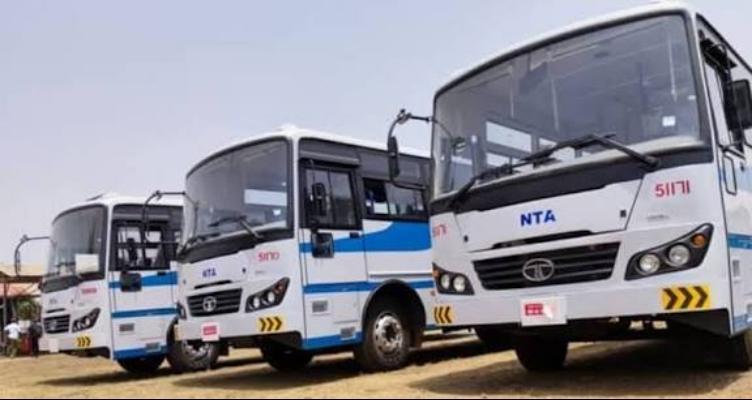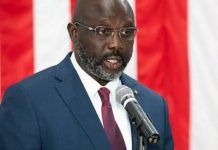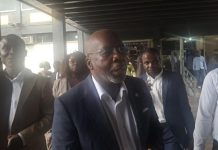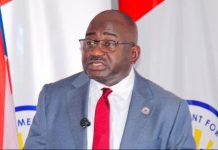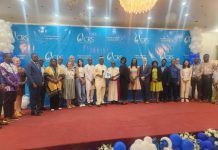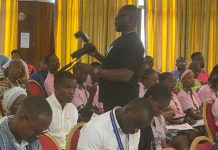Africa-Press – Liberia. Liberia’s long-promised commitment to inclusive development is under renewed scrutiny after the National Transit Authority (NTA) last week unveiled 35 brand-new buses, none of which includes accessibility features for persons living with disabilities.
The omission has triggered sharp criticism from disability rights advocates, civil society actors, and policy analysts, who warn that Liberia is entrenching a development model that leaves thousands behind.
The buses, procured under the leadership of Acting Managing Director Edmund R. Forh and Deputy Managing Director for Administration Togar Melvin Cephus, were presented as a milestone in revamping public transport.
But what was intended as a celebratory national moment quickly turned contentious.
During a ceremonial ride from the NTA headquarters on the Japan Freeway to the Executive Mansion, President Joseph Nyuma Boakai, who boarded one of the buses, was booed by some bystanders along the route, an unusual public reaction that political observers say reflects growing frustration over governance, rising costs, and widening perceptions of inequity.
“This Is Not Public Transportations, It’s Selective Transportation”
Among the critics is Perkins E. T. Boye, Country Director of the Professional Advocates for Disabilities Inclusion in Liberia and President of the University of Liberia Students With Disabilities.
Boye, a respected voice within the disability community, said the Government’s decision to procure inaccessible buses represents a “dangerous mindset” in national planning.
“This is not public transportation, this is selective transportation,” Boye told FrontPage Africa in a communication.
Perkins E. T. Boye, a respected voice within the disability community, said the Government’s decision to procure inaccessible buses represents a “dangerous mindset” in national planning.
“When you buy 35 buses with public money and not a single one can be used by people in wheelchairs or those with mobility impairments, that is not an oversight. That is exclusion by design.”
Boye said the procurement is the latest example of a recurring pattern where leaders “speak the language of inclusion during speeches but practice something entirely different during implementation.”
The NTA bus controversy coincides with ongoing debates over the 2025 Draft National Budget, projected at more than US$1.2 billion.
Despite Liberia having an estimated 420,000 citizens living with disabilities, less than US$600,000, or under 0.05%, is allocated for disability-related services, welfare, and empowerment programs.
Boye called the figure “a national insult.”
“You cannot say Liberia is for everyone when nearly half a million of us are given less than 0.05% of the national budget,” he said.
“We are not asking for charity, we are asking for equal participation, equal access, and equal respect.”
According to the 2022 LISGIS census, Liberia’s disability population exceeds the total population of some counties, a demographic reality advocates say should be impossible for policymakers to ignore.
Laws On Paper, Barriers In Reality
Though Liberia has ratified the UN Convention on the Rights of Persons with Disabilities (CRPD), signed the African Charter on Human and Peoples’ Rights, and created the National Commission on Disabilities, implementation remains weak across sectors.
“Liberia does not lack legal frameworks, it lacks execution,” Boye stressed.
“The buses are a vivid symbol of how far the gap remains between commitment and action.”
Public transportation is a gateway to education, employment, healthcare, markets, and democratic participation.
When it excludes a major demographic group, advocates say development becomes selective rather than national.
Economic Cost Of Exclusion
Economists warn that countries may lose 3% to 7% of GDP annually when persons with disabilities are systematically excluded from the workforce and public life.
In an already struggling economy, Liberia cannot afford such losses.
Advocates Boye further pointed to East African nations that have integrated disability inclusion into development planning, naming Rwanda for mandating accessibility in all public infrastructure and urban planning and Kenya for enforcing employment quotas, offering disability allowances, and investing in accessible transport.
Liberia, Boye argues, treats disability as a humanitarian issue instead of a development imperative.
Boye and other activists are now calling on lawmakers to increase budgetary allocation for disability programs, mandate accessibility standards in all government procurement, conduct national accessibility audits of schools, hospitals, and public buildings and enforce existing disability rights laws.
They say the Legislature must send a clear message that Liberia’s development agenda is intended for all its citizens, not just those without barriers to mobility or opportunity.
Symbolism Cannot Replace Substance’
President Boakai’s bus ride was intended as a gesture of humility and solidarity.
Instead, it underscored the widening gap between government symbolism and citizens’ lived realities.
For Boye, the lesson is clear, that Liberia’s development remains incomplete, and fundamentally unfair, until every citizen’s rights and needs are reflected in planning, budgeting, and execution.
“Development is not defined by the number of buses, the size of the budget, or the speeches made,” Boye said.
“It is defined by who benefits. And right now, too many Liberians are being left behind.”
For More News And Analysis About Liberia Follow Africa-Press

